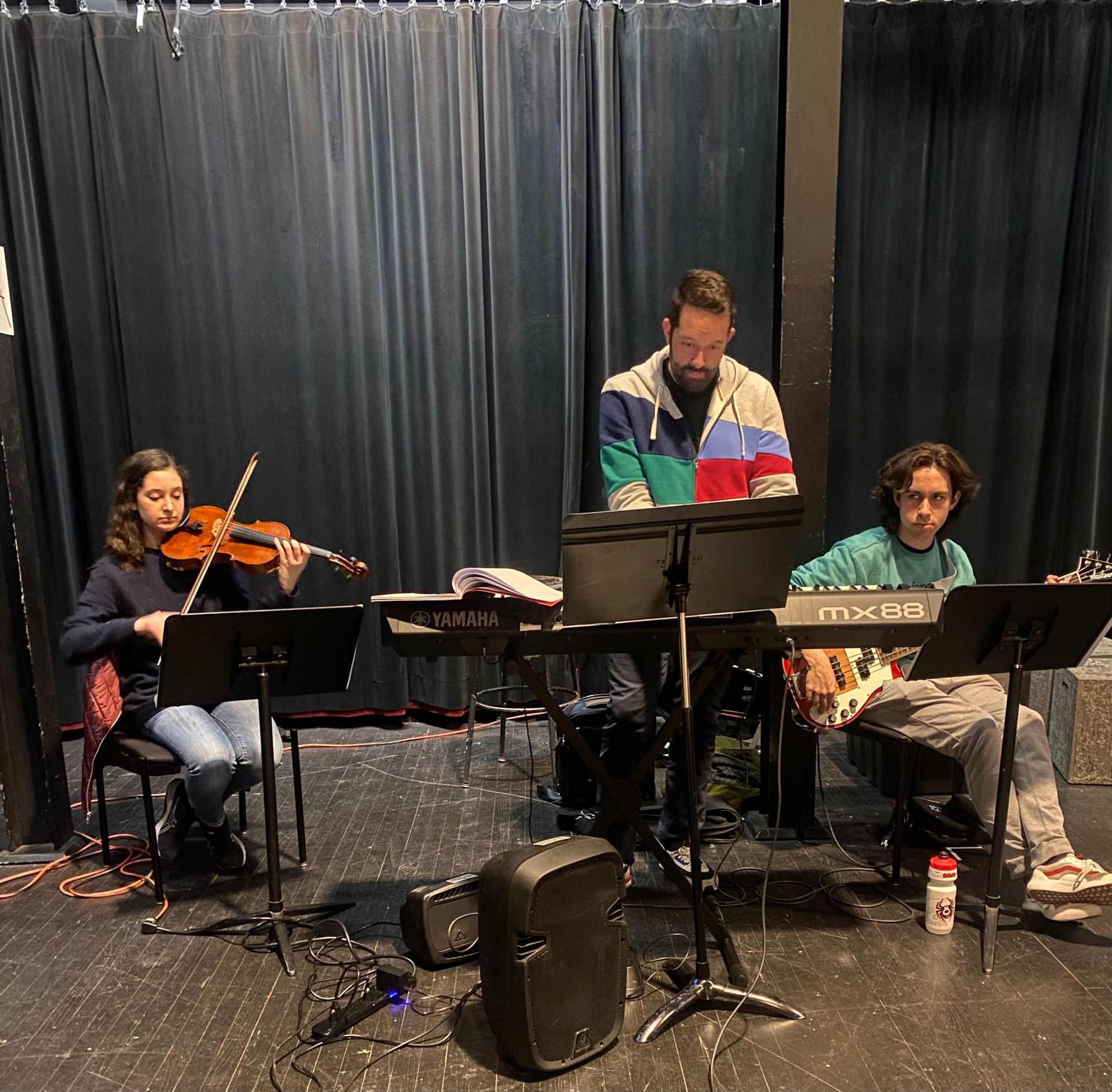The Music of Eurydice


Pictured above is musical director Michael Ciavaglia, Andrew Margaritis on bass, and Elizabeth Messier on viola
When director Marti LoMonaco asked Michael Ciavaglia to help prepare the brief musical interludes written in Sarah Ruhl’s play for this production, he asked her if she’d like him to compose a score for the entire show. She was stunned---what an amazing offer!—and she quickly accepted. “This would be a whole new conception for this non- musical play,” she said, “which, although focused on the character of Eurydice, cannot help but include music—after all, she married Orpheus who, as she admits, ‘plays the most beautiful music in the world.’” In addition to composing, performing, and conducting his new score, Michael took the time to answer a few questions:
1) Why did you offer to compose a score for the show? What inspired you?
Orpheus's story is the story of music. The story provides the material for the first extant opera in history (at the turn of the 17th century), making it a sort of grandparent to all opera and musical theatre. And that story has inspired creators of stage works ever since. I've always thought that this story (conceived as HIS story) appears in so many operas and musical-dramatic productions for two reasons: first, the focus on the power of music in the plot, opening the world of the dead to Orpheus and secondly (and perhaps more significantly), because just about every human being can identify with Orpheus's deep desire, against all odds and contrary to all reality, to be reunited with someone who has died.
In Eurydice, Sarah Ruhl takes these two ideas and makes us look at them in new ways, showing that Eurydice has her own searing loss to motivate her, and questioning with care and brilliance Orpheus's slavish devotion to his music. The play does not banish music by any means, and I am thrilled to contribute new music to this production.
2) What are the particular challenges of scoring a non-musical theatre piece, even though Orpheus is considered "the greatest musician in the world"?
We encounter music in lots of non-musical settings, from the grocery store to action films. Truly, music surrounds us from the moment we awaken until the last device we set aside at the end of the night. In presenting music outside of a strictly musical context like our production of Eurydice, we musicians do it well when we find the right balance of musical expression and support of the primary dramatic forces on the stage. I wanted the music for Eurydice to be inspiring but also unobtrusive; believably the mythical Orpheus's, but also firmly belonging to us in Fairfield in 2023. I did not try to write the greatest music in the world but tried to capture the heady feeling of making one's own music, of bringing it into the world and of sharing it with others.
3) What would you like audiences to especially listen for?
The instrumentation is a combination of the old and the new, and that carries through in the musical style as well. We achieve remarkable power through minimal forces, and each instrument has its opportunity to be featured. Orpheus's theme, which recurs throughout the play, both onstage and off, is one of longing and resolve. As the Father builds a room of string, we hear a reimagining of Johannes Brahms's second viola sonata, itself a masterpiece of music created with strings. And as the various characters strive to communicate, the instruments are with them, sometimes in notes, sometimes in melodies, and sometimes in phrases.
